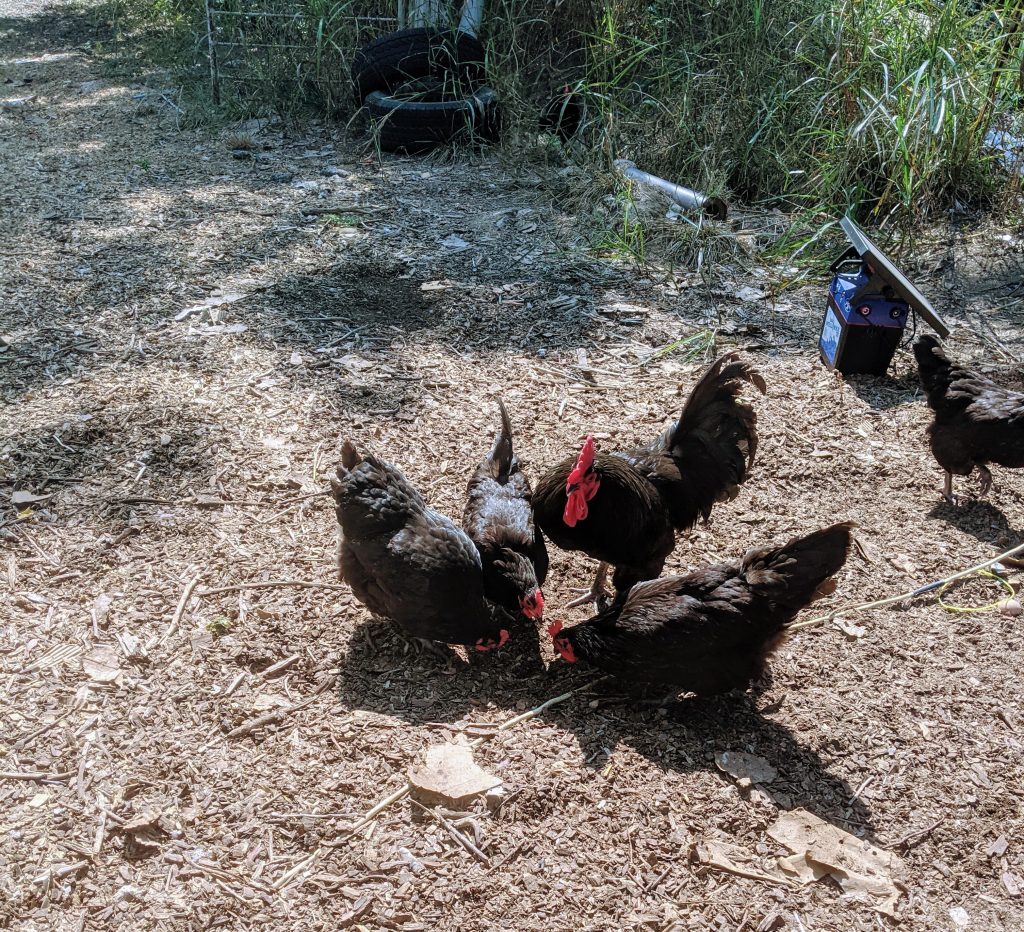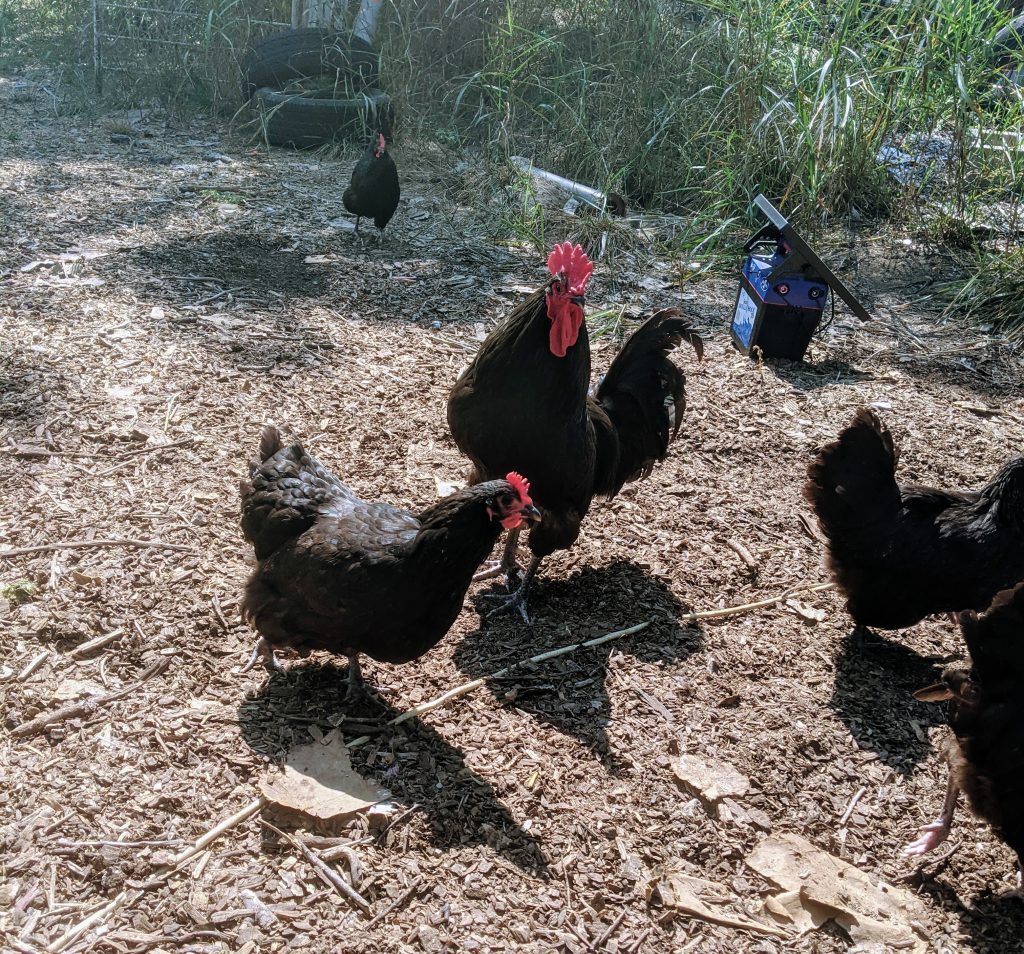5 Common Reasons Roosters Crow
We all know roosters crow in the morning, but research has actually shown that roosters crow for a variety of reasons throughout the entire day. Crowing is sometimes thought of as annoying and it can keep people from adding a rooster to their flock. However, roosters can be fantastic for the flock. They are needed for a variety of functions.
Crowing can defiantly be annoying sometimes, but a lot of the time they have a good reason to crow. Besides waking up the flock, here is a list of 5 other reasons a rooster might crow:
1. Alerting Hens To Danger.
This is arguably one of the most important reasons roosters crow. Roosters are very protective of their flock. One of the ways they do this is by keeping a lookout for predators. They do a fantastic job of scanning the sky for aerial predators like hawks and eagles, and the ground for crawling predators like snakes, foxes, and raccoons. When roosters spot danger, they let out an identifiable short, shrill crow to say “HIDE!” The hens respond by scattering and/or hiding as quickly as possible. They will often crow at the slightest hint of danger even if it’s just a small blackbird that flew a little to low. They are trained to act quickly because predators often act very quickly.
Roosters may also crow at night in response to perceived danger. Unfamiliar sounds outside the coop at night that are overheard could be thought of as a threat. This could cause roosters to sound the alarm and wait for the perceived danger to leave. Roosters tend to be of the opinion that you can never be to safe.
If roosters scan the terrain for predators and find none, they will let out a different type of crow (the hens know how to differentiate different crows). This “all clear” call communicates to the hens that it’s safe and that they can continue about their business. Roosters may do this several times a day so their flock knows that all is well and there is no reason to fear.
2. Finding Snacks

Hens LOVE food. When we dump food scrap in the chicken yard, they are truly a sight to see. All the hens rush to the dumpsite, grab a grape or a hotdog piece and run all around the yard clucking wildly. Feeding time is one of my family’s favorite things to watch. Roosters seem to share this opinion with us. When roosters aren’t actively watching out for danger, they enjoy finding food for the hens. When they find a nice patch of bugs or weeds they will alert the hens (their favorite ones first of course).
3. Keeping Hens On Schedule.
From the moment it’s time to wake up until it’s time to settle down and go to sleep, roosters have an internal clock and a thought out schedule. Roosters are natural time keepers. They know when it’s time to wake, rest, forage and eat, sleep, etc. This is the reason for the early morning crowing, but they can be heard squawking orders at the hens throughout the whole day. Our rooster helps us chase all 73 of our laying hens out of the coop in the morning and into the coop at bedtime. He also helps regulate feeding time (as much as he can because those hens are crazy). This bossy, stubborn nature makes them great at enforcing this schedule and keeping the hens on task.
4. Breaking Up Fights

On occasion, Hens can squabble or even get into full fledged fights. Alpha hens will often pick on hens lower in the social hierarchy. This can be about anything from fighting over food to plain boredom. Roosters are good at monitoring these fights and getting involved if necessary. Because of this, it may be good to have a rooster around.
Chickens are activated by the smell of blood. If one of the hens is wounded, it will attract other chickens. They will proceed to relentlessly torment this poor wounded chicken by pecking at the wound, which results in a larger wound. Regardless of if you have roosters or not, it would be best to isolate this hen until she is healed up.
6. Marking His Territory
Roosters are very territorial birds. A rooster loves to let everyone know that this is HIS flock. Just like hens, if you have more than one rooster, there will be a single alpha rooster. This is the rooster who initiates the “good morning” crow. The rest of the roosters will fall in line according to the established pecking order.
The pecking order is established by fights. The winning rooster becomes dominate over the losing one. There is generally blood drawn, but These fights do not usually result in death. They end when one rooster runs away. It’s good for the roosters to have these fights and establish a pecking order. Wounds will usually heal on their own, but it is a good idea to rinse and disinfect them (you can use hydrogen peroxide or the Vetericyn Plus Antimicrobial Poultry Care spray on Amazon for disinfecting). On occasion, one rooster might land a blow that does some damage. If you are concerned, take your injured rooster to a veterinarian who is comfortable treating chickens.
5. Because It’s Fun!
Chickens, just like us, are vocal animals. Sometimes, it’s because he just got lucky and he’s pretty happy about it, other times he just wants to be heard. Roosters are not shy about telling you what they think! Hens aren’t either! Some people might not consider fun a “good reason” to crow, but a happy flock is not something to take for granted.

Summery
The fact that roosters are so vocal is a big reason why it’s so beneficial to have rooster(s) in your flock. Yes, it can be annoying to have a rooster wake you up early when you wanted to sleep in, and technically, you don’t have to have a rooster. When the flock is without a rooster, the alpha hen will often take on some of the responsibilities of the rooster. She will do her best, loudest crow in the morning, help alert the flock to danger, and she might even try mounting a few of the other hens. Chickens naturally want a leader of the flock.
Roosters can help your hens stay safe, happy, organized, and maintain the social health of the flock. Hens that feel safe and happy often produce more eggs than hens that don’t. In addition, if you are interested in closing the loops and becoming more self reliant, roosters’ ability to fertilize eggs will come in handy. Roosters might be worth adding one, or possibly even some, to your flock. Make sure to check to see if roosters are allowed in your area.
Related Questions
How many hens do I need per rooster? (Post coming soon)
How do I breed chickens? (Post coming soon)
How much space do chickens really need? (Post coming soon)
